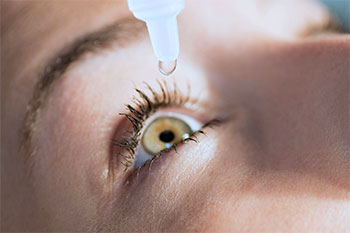Swollen eyes can be uncomfortable and concerning, affecting both appearance and vision. Understanding the causes of eye swelling, effective remedies, and preventive measures can help alleviate symptoms and promote eye health. Whether the swelling is due to allergies, injury, or other factors, here’s a comprehensive guide on how to reduce swelling in eyes. Nepafenac Eye Drop is used to treat pain and swelling of the eye following cataract surgery.
Common Causes of Eye Swelling:
Eye swelling can occur for various reasons, including:
-
Allergies: Allergic reactions to pollen, dust, pet dander, or certain foods can cause swollen and puffy eyes. Nevanac Eye Drops Price is a topical nonsteroidal anti-inflammatory drug (NSAID).
-
Conjunctivitis (Pink Eye): Inflammation of the conjunctiva (the membrane lining the eyelids and covering the white part of the eye) due to viral or bacterial infections can lead to swollen eyes.
-
Styes: A bacterial infection of an eyelash follicle or oil gland on the eyelid can cause a painful lump and swelling.
-
Sinusitis: Sinus infections or sinus congestion can cause fluid retention around the eyes, resulting in puffiness.
-
Trauma or Injury: Any injury to the eye area, such as a blow to the eye or eyelid, can cause swelling.
-
Fatigue and Lack of Sleep: Not getting enough sleep or feeling tired can lead to fluid retention and puffiness around the eyes.
-
Dermatitis or Skin Conditions: Conditions like eczema or contact dermatitis can cause inflammation and swelling around the eyes.
Remedies to Reduce Swelling in Eyes:
Depending on the cause of eye swelling, several remedies can help alleviate symptoms and promote faster recovery:
-
Cold Compress:
- Apply a cold compress or chilled cucumber slices to the eyes for 10-15 minutes to reduce swelling and soothe inflammation.
- Cold compresses constrict blood vessels and help reduce fluid retention around the eyes.
-
Tea Bags:
- Chamomile or green tea bags that have been steeped in hot water and then cooled can be placed over closed eyes for 10-15 minutes.
- Tea contains anti-inflammatory properties that can help reduce swelling and puffiness.
-
Hydration:
- Drink plenty of water to stay hydrated, as dehydration can exacerbate eye swelling and puffiness.
-
Eye Drops:
- Over-the-counter eye drops or artificial tears can help soothe irritated eyes and reduce redness and swelling caused by allergies or dryness.
-
Antihistamines:
- If allergies are the cause of eye swelling, over-the-counter or prescription antihistamine medications can help relieve symptoms.
-
Elevation:
- Elevate your head with an extra pillow while sleeping to reduce fluid retention around the eyes.
-
Avoid Rubbing:
- Avoid rubbing or touching your eyes, as this can worsen swelling and irritation.
-
Limit Salt Intake:
- Reduce your intake of salty foods, as excess salt can contribute to fluid retention and puffiness around the eyes.
Preventive Measures for Eye Swelling:
Taking preventive measures can help reduce the likelihood of experiencing eye swelling:
-
Manage Allergies:
- Identify and avoid allergens that trigger allergic reactions, and use allergy medications as prescribed.
-
Eye Protection:
- Wear protective eyewear, such as goggles or sunglasses, to shield your eyes from dust, pollen, and other irritants.
-
Good Hygiene:
- Wash your hands frequently to prevent the spread of bacteria that can cause infections like conjunctivitis.
-
Healthy Lifestyle:
- Get an adequate amount of sleep each night to prevent fatigue-related eye puffiness.
-
Avoid Eye Strain:
- Take breaks from screens (computers, smartphones) to prevent eye strain and fatigue.
-
Proper Contact Lens Care:
- Follow proper hygiene and care instructions for contact lenses to reduce the risk of eye infections.
-
Maintain a Balanced Diet:
- Eat a nutritious diet rich in antioxidants, vitamins (especially vitamin C and E), and omega-3 fatty acids to support eye health.
When to See a Doctor:
In some cases, eye swelling may indicate a more serious condition or require medical attention:
- If eye swelling is severe, sudden, or accompanied by pain or vision changes.
- If swelling persists despite home remedies and self-care measures.
- If you have symptoms of an eye infection, such as discharge, redness, or sensitivity to light.
Conclusion:
Reducing swelling in the eyes involves understanding the underlying cause and applying appropriate remedies and preventive measures. By addressing allergies, practicing good hygiene, and using soothing treatments like cold compresses or tea bags, you can effectively alleviate eye swelling and promote overall eye health. If you experience persistent or severe eye swelling, or if you have concerns about your symptoms, consult with an eye care professional for proper diagnosis and treatment. Taking proactive steps to care for your eyes can help minimize discomfort and maintain clear, healthy vision.

